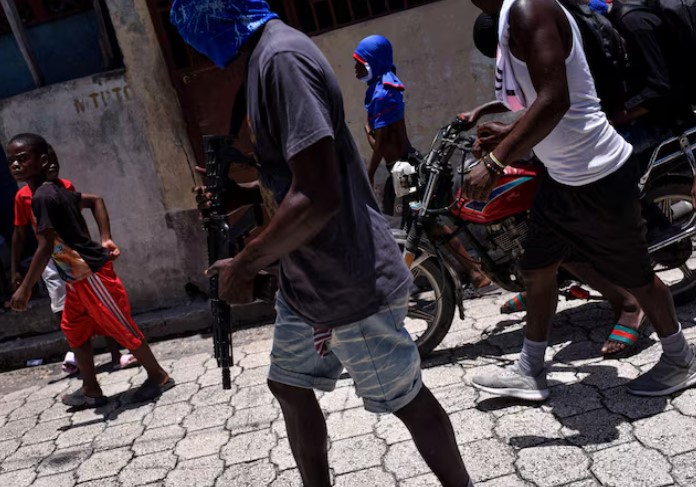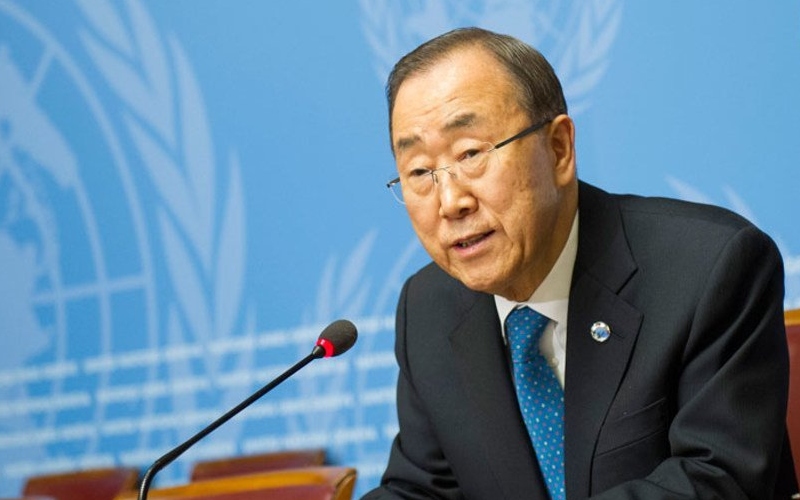Haiti, South Africa ranked among top five nations with highest crime rate globally

The review states that Venezuela’s high crime rates have been attributed to factors such as government corruption, a flawed judicial system and the breakdown of the rule of law.
Venezuela, Papua New Guinea, Afghanistan, Haiti and South Africa now rank as the top five countries with the highest crime indices globally.
This is according to the World Population Review, which also places Yemen at number nine, Angola 13, Nigeria 14, Somalia 16, Namibia 19, and Mozambique 20. Cameroon is at 21, Zimbabwe 27 (just after Colombia), Kenya at number 35, Uganda 37 and Tanzania at 39.
More To Read
- Police officers returning from Haiti to be honoured at Jamhuri Day parade
- 230 Kenyan officers arrive home from Haiti as nation honours their heroic service
- 230 Kenyan police officers arrive in Port-au-Prince to reinforce UN-backed GSF
- Over 60,000 African penguins died as sardines disappeared from South Africa’s waters, study finds
- Kenyan police officers in Haiti to return home after year-long deployment
- Report links 60,000 penguin deaths to sardine decline, poor fisheries management
The review states that Venezuela’s high crime rates have been attributed to factors such as government corruption, a flawed judicial system and the breakdown of the rule of law.
In Papua New Guinea, organised crime in the form of corruption is also prevalent in major cities and significantly contributes to the high crime rate.
“Haiti’s ongoing political instability has allowed gang violence to flourish, with an estimated 150–200 gangs controlling as much as 60–100 per cent of the capital, Port-au-Prince. In 2023, the country recorded 4,789 murders and 2,490 kidnappings – nearly double the previous year’s figures,” the report stated.
“Firearms and drug trafficking, particularly from the United States and the Dominican Republic, fuel much of the violence. Gangs have taken control of key infrastructure, including ports and fuel terminals, further destabilising the country. Haiti’s weak border control and inadequate policing have made it a major hub for transnational drug smuggling, particularly for cocaine and cannabis,” the document notes.
South Africa has the fifth-highest crime rate in the world, notably due to the high incidence of assaults, rape, homicides and other violent crimes.
“This has been attributed to several factors, including high levels of poverty, inequality, unemployment, social exclusion and the normalisation of violence. South Africa has one of the highest rape rates in the world. More than one in four men surveyed by the South African Medical Research Council admitted to committing rape,” the review states.
Andorra, the UAE, Qatar, Taiwan, Oman, Armenia, Japan and Singapore rank as the safest countries in the listing, which is compiled annually based on a country’s criminal markets, criminal actors and resilience.
Under criminal markets, the review assesses financial crimes and cyber networks linked to human trafficking, arms trafficking, environmental offences and drug crimes. Under criminal actors, it examines the presence of mafia-style groups, criminal networks and state-embedded actors.
Regarding a country’s resilience, the review looks at its judicial system, law enforcement, and victim and witness support.
“Overall crime rate is calculated by dividing the total number of reported crimes of any kind by the total population, then multiplying the result by 100,000 (as crime rate is typically reported as X number of crimes per 100,000 people). Crime rates vary greatly from country to country and are influenced by many factors.”
“For example, high poverty levels and unemployment tend to inflate a country’s crime rate. Conversely, strict police enforcement and severe sentences tend to reduce crime rates. There is also a strong correlation between age and crime, with most crimes – especially violent crimes – being committed by those aged 20–30 years,” the review adds.
The document, however, notes that underlying factors beyond these metrics contribute to criminality, such as poverty, unemployment and the strictness of law enforcement.
As such, countries like Venezuela, Papua New Guinea and South Africa have high crime rates due to issues such as corruption, economic challenges and social instability, while low crime rates in countries like Switzerland and Japan are attributed to effective law enforcement and, in some cases, restrictive gun laws.
Top Stories Today











































